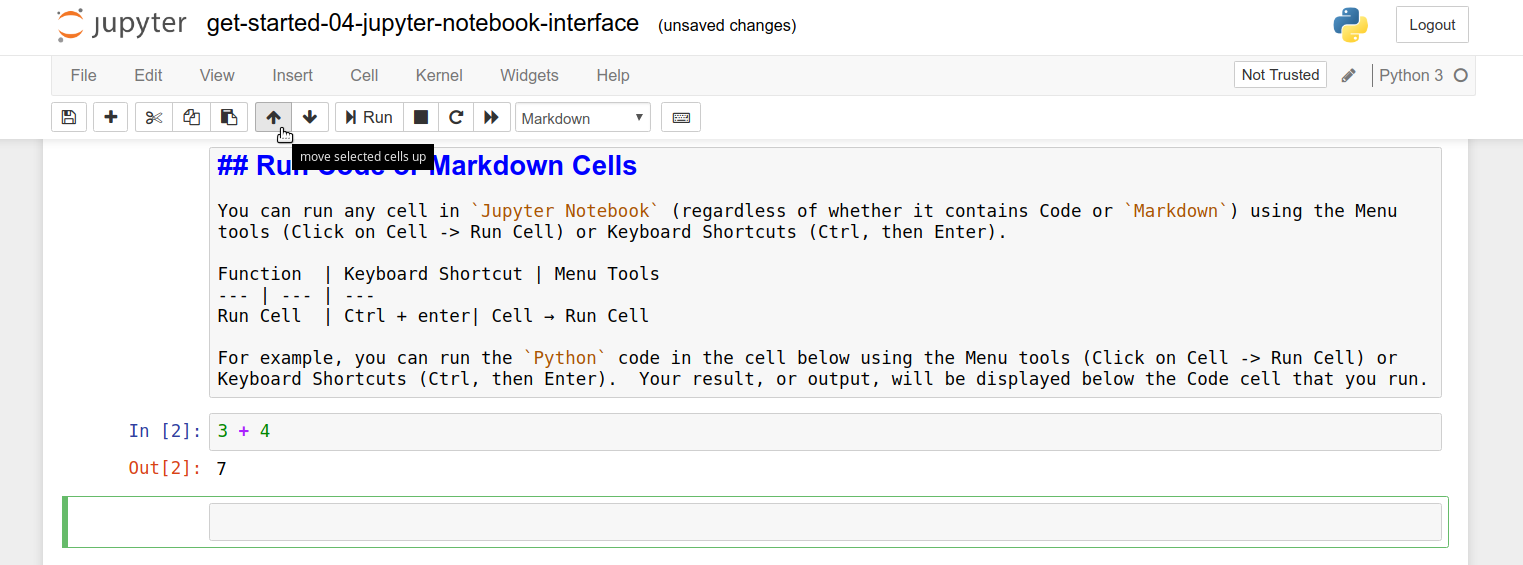

#Python jupyter notebook online install#
Note, for some repositories or archives you'll point MyBinder at, it won't have the necessary configuration files and so you can run %pip install or !conda install in the current session and continue on running code. Jake included configuration files that MyBinder also recognizes. Then from the index page that comes up you can click on the link you listed above and run it. Next, we will read the following dataset. import pandas as pd print(pd.version) > 0.17.1.

pandas is an open source Python library that provides high-performance, easy-to-use data structures and data analysis tools. That form will also generate a URL that you can use to target the public MyBinder system to open a session alter For example, this person posted the link to open a session for all of Jakes notebooks, you just got to the URL to tell MyBinder to start a session. Before we import our sample dataset into the notebook we will import the pandas library. Some don't but you can go to the form at MyBinder project and generate a session. Many repositories already include the necessary configuration files and even put a launch binder button them. It will open temporary, active sessions with the contents of any Github repo, Github Gists, Gitlab repo, Zenodo archive, Dataverse repo, Datashare archive, Figshare archive, and others.

I personally prefer the MyBinder project as a route.
#Python jupyter notebook online code#
In short, on each page he has an Open in Google Colab can open any notebook directly from run the notebook, just replace " " with " " in the notebook URL, and it will be loaded into Colab.Įxample: 02.00-Introduction-to-NumPy.ipynb becomes: īy default, code will run on Colab's distant server, but it's also possible to run it locally, by clicking on top right's Connect to local runtime.: Builds in a nice way to do that, see here.


 0 kommentar(er)
0 kommentar(er)
